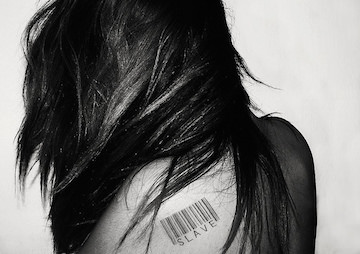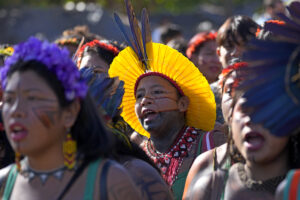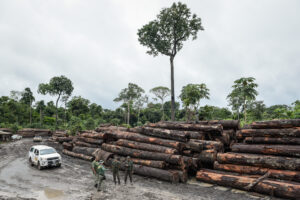Many of the World’s 21 Million Slaves Live in the West
Wagner Moura "was used to seeing well-off families take in girls from poorer ones" to "live in their homes and be brought up as one of their own." Later on, he "came to see it for what it really was." Ira Gelb / CC BY-ND 2.0
Ira Gelb / CC BY-ND 2.0
“As a child growing up in one of Brazil’s poorest regions,” writes actor and International Labour Organization goodwill ambassador Wagner Moura at The Guardian, “I was used to seeing well-off families take in girls from poorer ones to come live in their homes and be brought up as one of their own. It was only much later that I came to see it for what it really was: these young girls, who would do all the domestic chores all day long in return only for food and a roof over their heads, were in fact modern slaves.”
There are 21 million modern slaves in the world today, most of them women and girls hiding in plain sight in poor and rich countries alike – 7% of today’s slaves live in North America or the European Union. From trafficking and sexual exploitation to work in private homes, agriculture, fishing, construction and manufacturing, modern slavery is not only a crime, it is big business. It generates some $150bn in illegal profits every year, according to an estimate by the International Labour Organization (ILO).
Poverty is at the root of it, as is lack of awareness by both victims and the general public. Forced labor affects the most vulnerable and least protected people, perpetuating a vicious cycle of poverty and dependency. Women, low-skilled migrant workers, children, indigenous peoples and other groups suffering discrimination on different grounds are disproportionately affected. And many victims don’t even consider themselves to be slaves – working to pay off a debt passed down through generations, or being a servant in a private home from dusk to dawn is the only life some have ever known. At the same time, you may be eating food picked by modern slaves, or wearing clothes made with slave labor without realizing it.
To fight slavery, then, we must first and foremost fight poverty and advance social justice so that everyone will have the same opportunities. We also need robust laws that are enforced, inspections, social responsibility on the part of employers, awareness on the part of consumers, rehabilitation of victims and harsh penalties for those found guilty of enslaving people. Brazil is a case in point. In the last two decades the country has made remarkable progress in tackling slavery with a mix of strong policies and concerted action, an example to admire.
Read more here.
— Posted by Alexander Reed Kelly.
Your support matters…Independent journalism is under threat and overshadowed by heavily funded mainstream media.
You can help level the playing field. Become a member.
Your tax-deductible contribution keeps us digging beneath the headlines to give you thought-provoking, investigative reporting and analysis that unearths what's really happening- without compromise.
Give today to support our courageous, independent journalists.






You need to be a supporter to comment.
There are currently no responses to this article.
Be the first to respond.